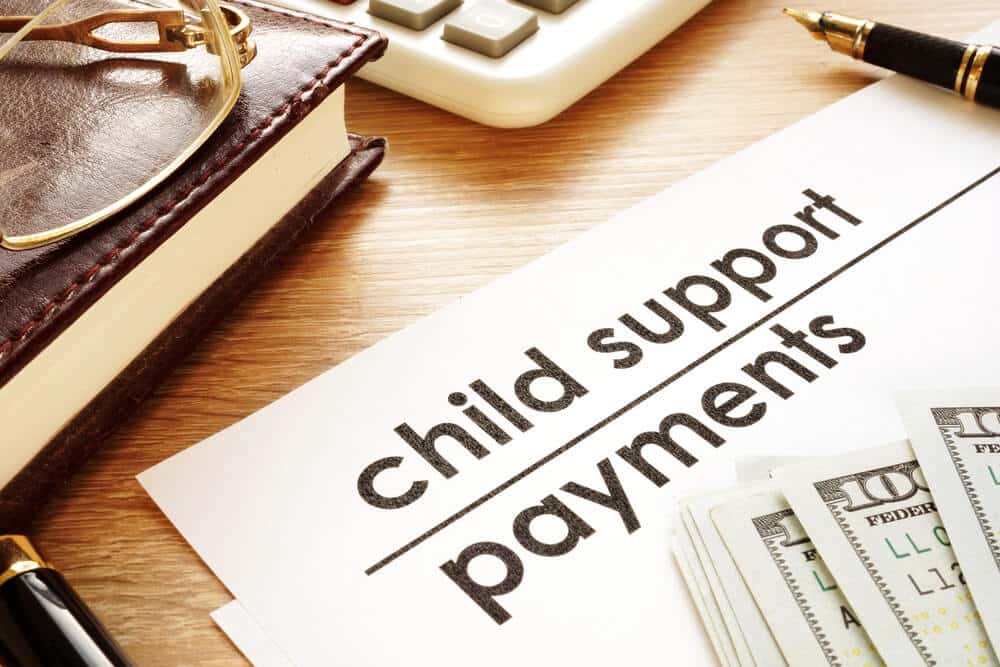Wage Garnishment Regulations for Child Support Payments in NJ
New Jersey Law Outlines the Process for Requesting or Objecting to Wage Garnishment for Delayed or Unpaid Child Support.
 Once a court has entered a judgment against someone who owes money, the court may order that a certain amount of that person’s salary be deducted automatically in order to pay the judgment. This is known as wage garnishment. If you owe money to a creditor, your earnings may be garnished. This means that the creditor can deduct a portion of your paycheck to recover past-due obligations. Unfortunately, this can make it more difficult to cover other necessary expenses in your day-to-day life. Typically, all those who are owed a debt have relief available to them in the form of wage garnishment. This includes the IRS, former spouses, debt collectors, past creditors, and other parties. When issues of delayed or unpaid child support arise in New Jersey, wage garnishment becomes a possible vehicle for the state, upon request of the parent who is supposed to be receiving child support payments.
Once a court has entered a judgment against someone who owes money, the court may order that a certain amount of that person’s salary be deducted automatically in order to pay the judgment. This is known as wage garnishment. If you owe money to a creditor, your earnings may be garnished. This means that the creditor can deduct a portion of your paycheck to recover past-due obligations. Unfortunately, this can make it more difficult to cover other necessary expenses in your day-to-day life. Typically, all those who are owed a debt have relief available to them in the form of wage garnishment. This includes the IRS, former spouses, debt collectors, past creditors, and other parties. When issues of delayed or unpaid child support arise in New Jersey, wage garnishment becomes a possible vehicle for the state, upon request of the parent who is supposed to be receiving child support payments.
An attorney that has a proven track record with wage garnishment cases is essential to obtain if a wage garnishment is being taken out on you for child support purposes in Freehold, Toms River, Jackson, Holmdel, Sea Bright, Brick, Eatontown, Red Bank, and across Ocean and Monmouth County. Fortunately, you’ve come to the right place if you are at risk of losing part of your paycheck for child support in Southern New Jersey. Our attorneys at Bronzino Law Firm can assist in defending your case. On the other hand, if you need to enforce a child support order and are facing the challenging situation of caring for your children while your ex has unpaid child support, a zealous family law attorney at our firm can fight on your and your children’s behalf to obtain the child support you are entitled to. Contact us today at (732) 812-3102 to discuss your case in a free consultation.
How is Wage Garnishment Handled in New Jersey?
Wages are typically garnished in cases where a defendant owes money to a creditor of some sort. These creditors can also be debt collectors and debt buyers, and they may only garnish your wages after a judge has signed a garnishment order. A garnishment order may only come after the debtor defendant has been sued and a judgment was entered against them by a judge in court.
Specifics of Wage Garnishment and Child Support
Child support is a unique instance in which your wages can be garnished without a court order to do so. If you are behind on child support payments, the person you pay the child support to (through the court) can ask the court for a judgment. If you are not in arrears and do not owe past due child support, the court may issue an order for your employer to withhold your income in the amount of child support that you regularly pay. The employer can then forward that amount to the state in order to fulfill your current obligations.
To garnish your wages, the parent who is owed the arrears may ask for a Writ of Execution. Once received, the Sheriff will notify your employer to garnish your wages in order to pay back the arrears.
Applying Wage Garnishment to Other Situations
Wage garnishments can also occur in other situations. For instance, the Internal Revenue Service can garnish your wages in order to pay back debts you may owe to them. Also, federal student loan servicers can request that your wages be garnished in order to pay back a student loan you may have taken out some time ago.
Legal Limitations on Wage Garnishment
Wage garnishment is subject to limits under federal and state law. Certain variables must be considered, for example, what kind of debt is owed and how much income the debtor is currently earning. It is important to note that your employer cannot terminate you because your wages are being garnished.
What Percentage of a Wage May Be Garnished for Child Support Purposes in NJ?
In New Jersey, if you make at least 250% of the federal poverty level in income, 10% of your wages can be garnished or 25% of your disposable income for the week. Whichever amount is less will be the amount that is able to be garnished for the creditor. Under Federal law, if the wage garnishment is for anything other than child support or alimony, a maximum garnishment of 25% of the net wages of the person being garnished is allowed. However, if the garnishment is for child support, 50% of the net wages can be garnished unless more than 12 weeks of back child support is owed, in which case 60% can be garnished.
Wage Garnishment Request Process in New Jersey

Objecting to a Request for Wage Garnishment
If your wages are at risk of being garnished, you do have a right to object. If you are notified in person of the application to garnish wages, you have ten (10) days to object. If you are served by mail, you have thirteen (13) days to object. If you object, a hearing will be scheduled, and a judge will make the final determination of whether or not your wages will be garnished.
The best defense to garnishment is to keep proper records of every payment made. If you owe child support and you’re at risk of a wage garnishment, then make sure to compile all child support payments that you have made. If a wage garnishment is being pursued against you, you can object or have an experienced attorney file paperwork with the court in order to stop the process.
Wondering About Wage Garnishment in Your NJ Child Support Case? Contact a Seasoned Ocean NJ Family Lawyer Today
In cases of child support issues, you need an experienced family lawyer who can show certain things that the court looks for when they are in the process of issuing a garnishment order. Your attorney will be able to communicate with all parties involved and best be able to represent your interests adequately while keeping your expectations in check. At Bronzino Law Firm, our knowledgeable family lawyers are ready to handle all aspects of child support matters, whether you need to defend yourself against a court order or enforce an order that is not being upheld. Contact us at (732) 812-3102 or send us a message online to get a free consultation.







